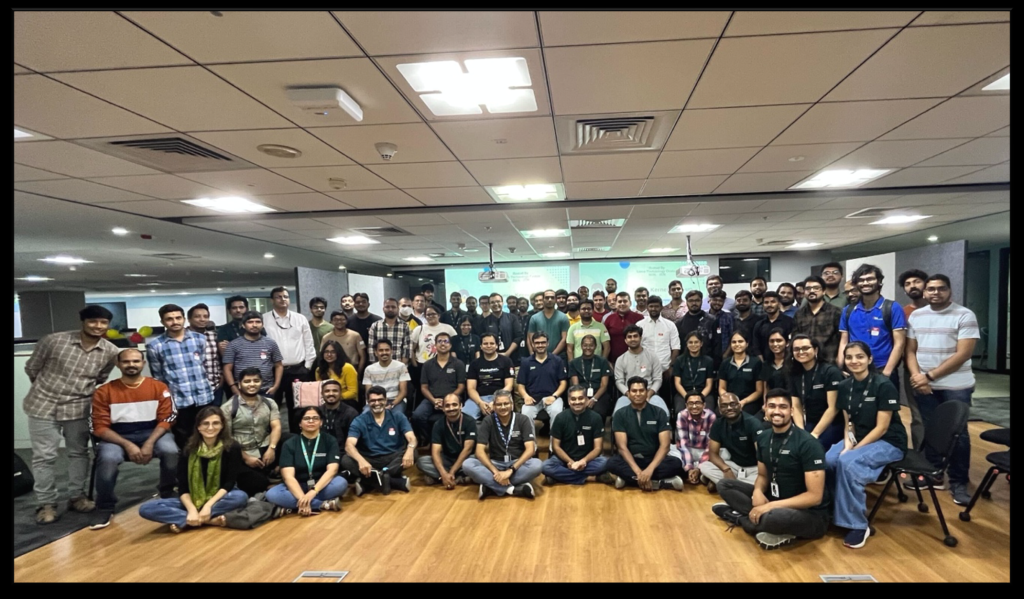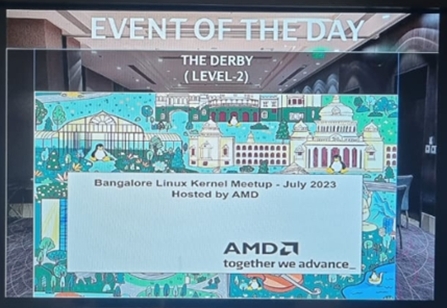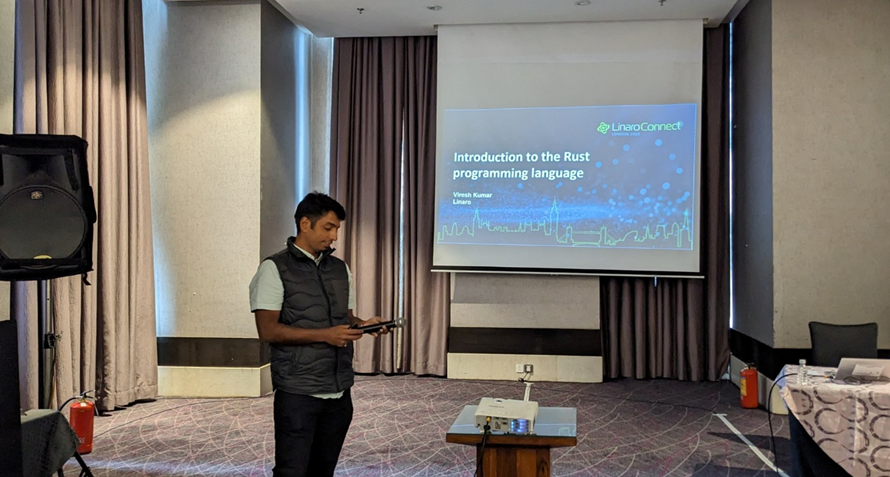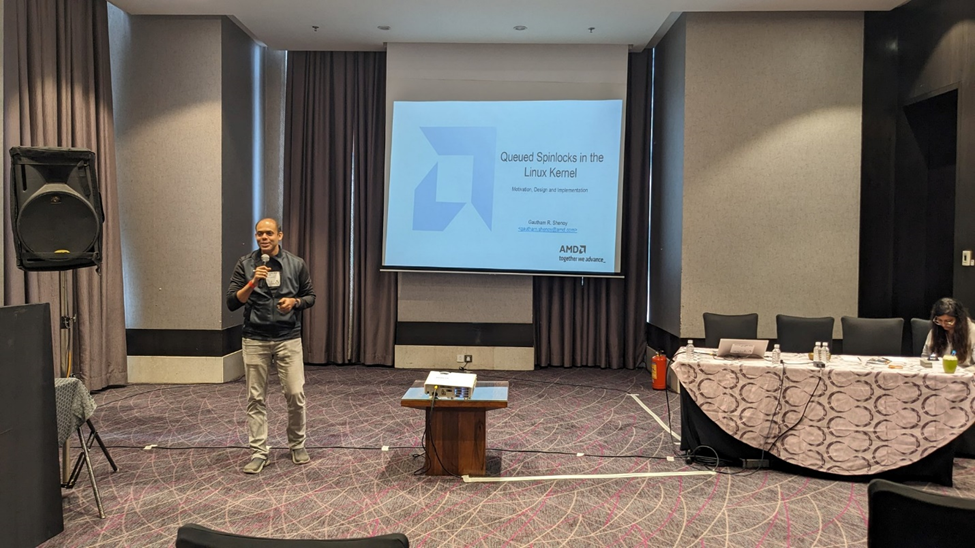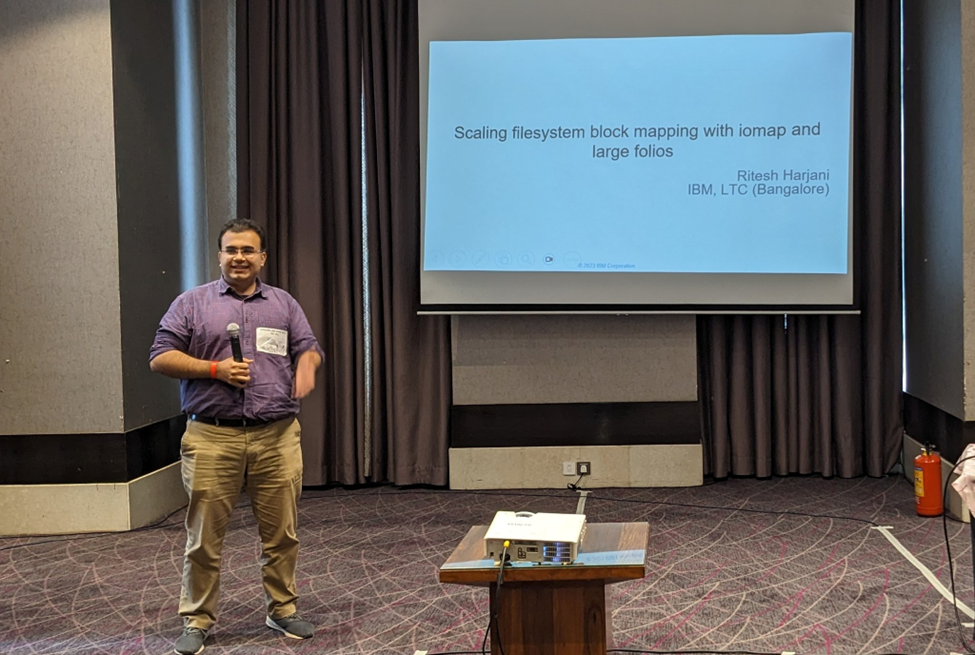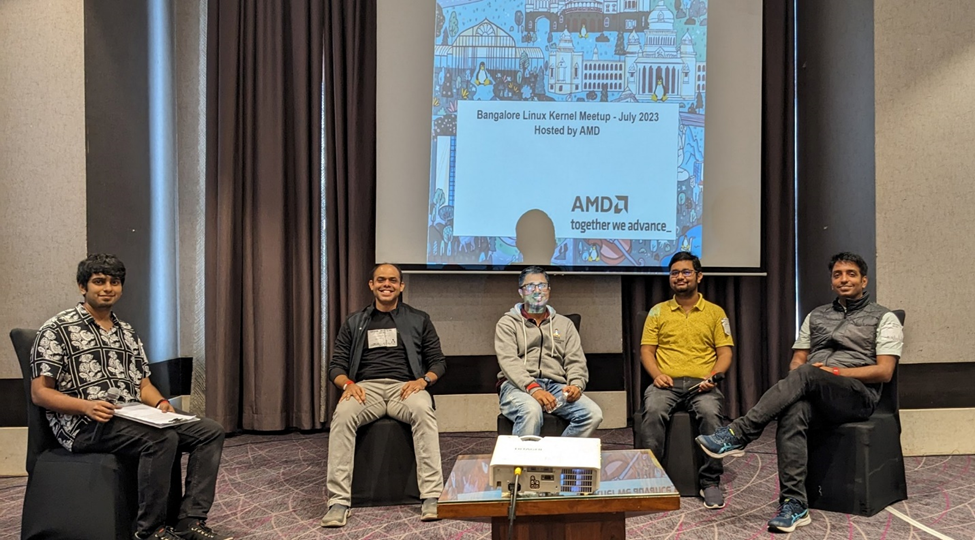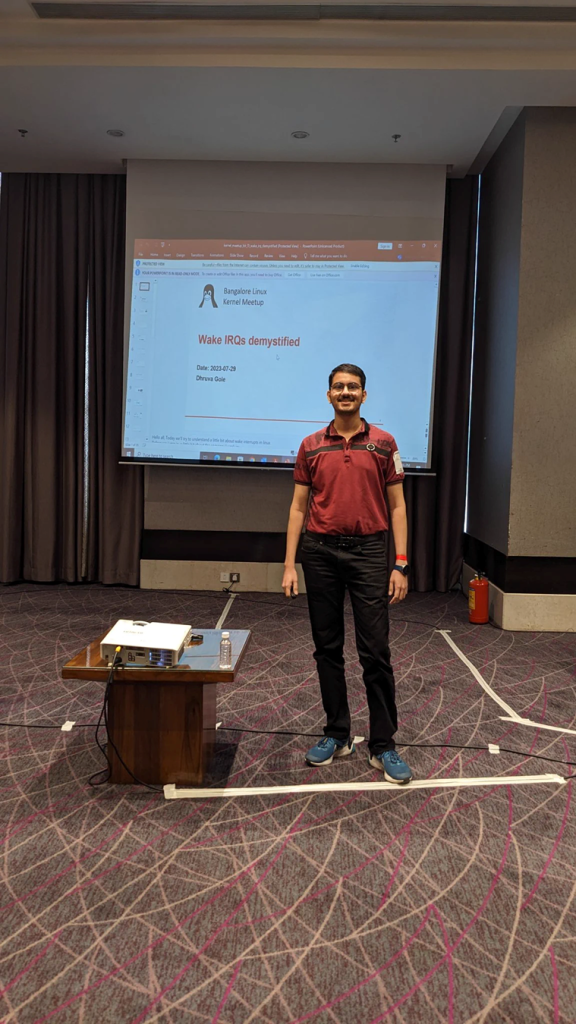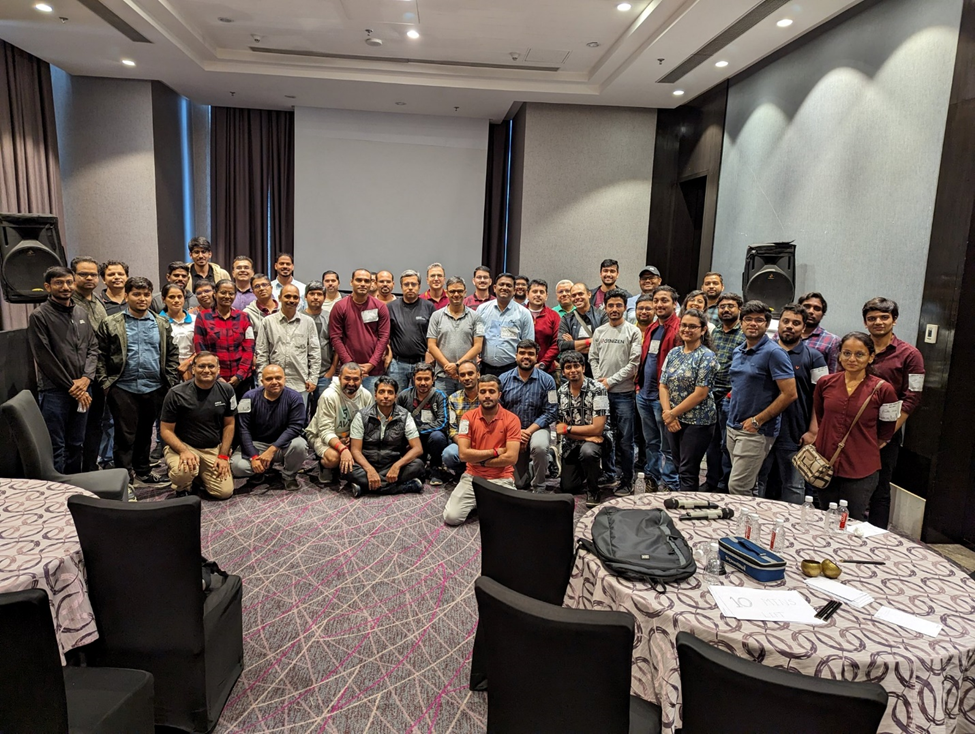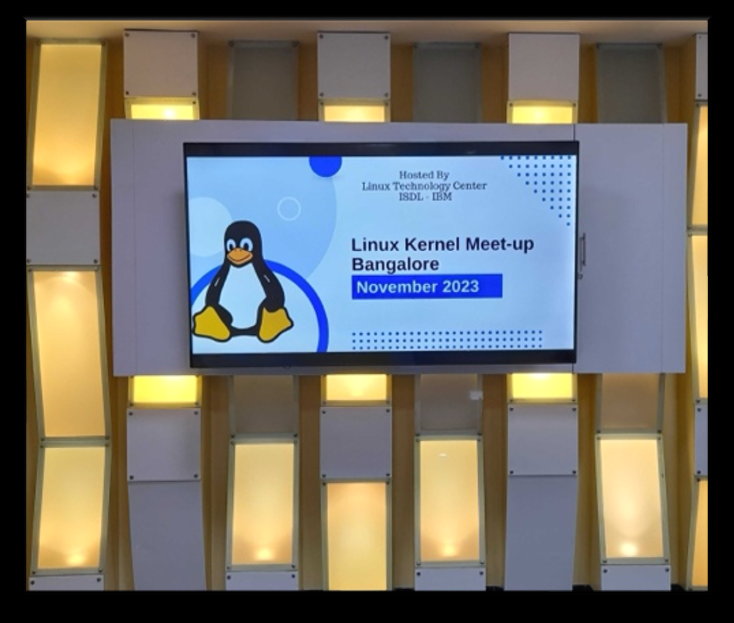
Dear Linux Enthusiasts,
On a pleasant (and as usual very traffic-free) Saturday, we embarked on the second Linux Kernel Bangalore Meetup of the year 2023 held on the 4th of November at IBM premises at Embassy Golf Links, and boy, did it shine brightly on the radar! With the number of eager participants inching towards a hundred, this gathering brought together familiar faces and a sprinkle of new ones, promising a day of knowledge, camaraderie, networking and learning. The day commenced with a warm Welcome Note by the Aneesh Kumar K V from IBM, Linux Technology Center (LTC) who shared the agenda for the day.
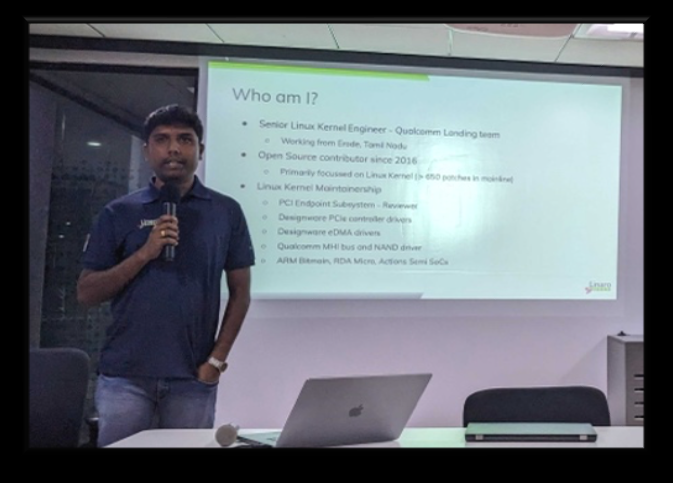
With the stage set, Manivannan Sadhasivam, a Senior Linux Kernel Engineer from Linaro, who has been an open source contributor since 2016, took the spotlight as the first presenter of the day. Manivannan captivated the audience with insights into Saga of PCIe on ARM, setting the tone for the day. In his presentation, he presented PCIe in a nutshell and broke some common misconception around it, especially on ARM SoCs.
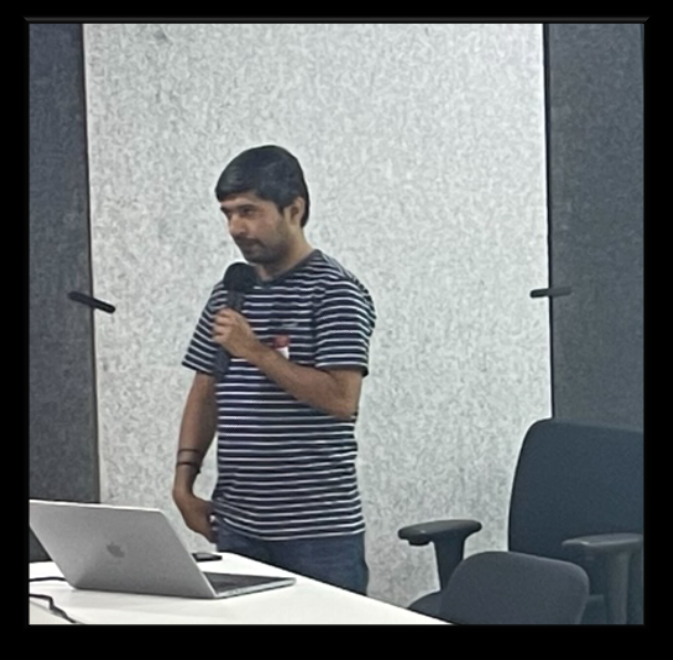
The baton(er, more appropriately the microphone) was then passed to Vasant Hegde, a Linux Engineer from AMD, who dived deep into the IOMMU world focusing on how IOMMU helps provide IO Security,
keeping the audience on the edge of their seats. He started by introducing IOMMU, where it fits in the physical address landscape, gave an overview of the IOMMU subsystem and delved into the DMA
and Interrupt remapping and finally shared the current upstream status of vIOMMU. Prompted by a questions in the audience, he also shared his experience working on IOMMU, which it will be safe to assume other developers working on IOMMU will highly resonate to.
Post these two engaging sessions, it was time to recharge our spirits with some refreshments. While coffee, tea with biscuits on the side, were on the menu, most attendees seemed to prefer savouring the
delight of reconnecting with old pals and making new connections, which is no surprise given the spirit of our Linux community.
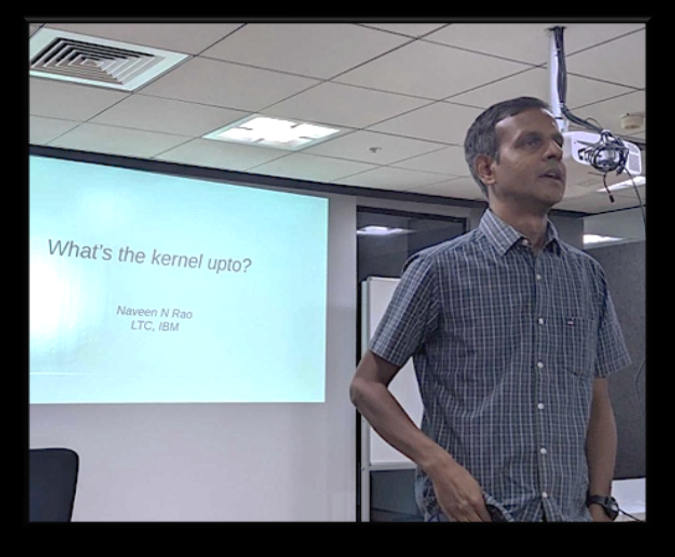
Our journey of learning continued with Naveen N Rao, Linux engineer with IBM, Linux Technology Center(LTC); who gave an interactive session on tracing. He had a demo in place to take the audience stepwise into the journey of tracing. He graciously took on all questions from the audience in the flow of his presentation and also brought the audience up to speed with the changes in tracing tools in the most recent kernel.
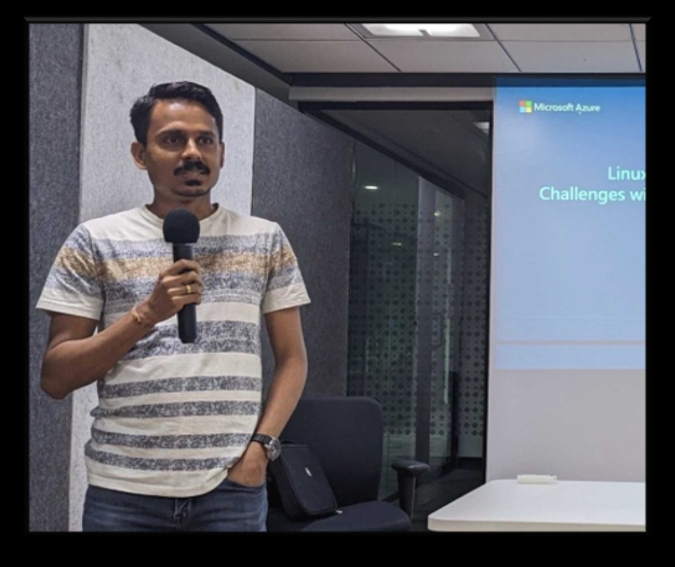
Then, it was time for a slight detour as Srivatsa Bhat, a Principal Software Engineer with the Microsoft Linux Systems Group, delved into a relatively niche topic – Linux kernel Real-Time Design and Challenges
it faces with Emerging Telco/5G RT Workloads. He explained the difference in Scheduling Latency in Linux Kernel between real-time and non-real-time and gave a pretty good explanation of the OS jitters. He offered an overview that left the audience with a better understanding and also invited interested
contributors to solve challenging problems in that field of domain.
Lunch hour arrived, and we were treated to lunchboxes by IBM, a delightful trip down memory lane to our
school lunch breaks. The nostalgia added a delightful touch to our day of Linux exploration.
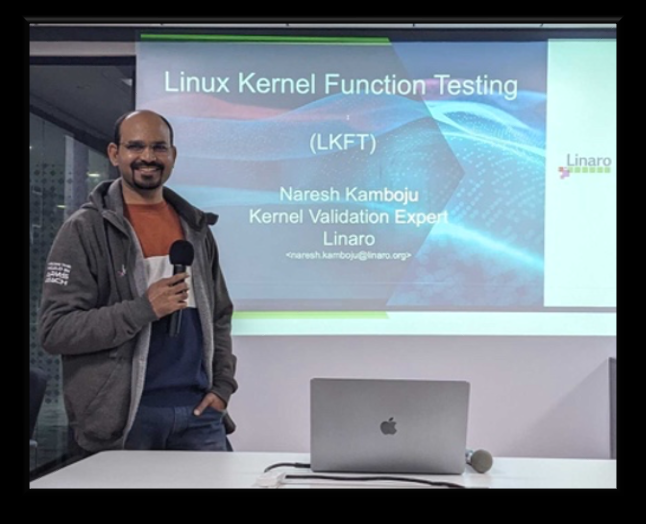
Post-lunch, Naresh Kamboju, a Linux Kernel Validation Expert from Linaro, took the stage for the final dedicated talk. He introduced the framework used by Linaro to improve the quality of the Linux kernel by performing functional testing. He walked the audience through the process of building and running TuxMake and TuxSuite tools for testing Linux. He encouraged the audience for an interactive session and answered the various questions asked along the run of his presentation.
The end of dedicated talks paved the way for a series of lightning talks, where speakers had just fifeteen
minutes to create sparks or thunder. Unlike the longer dedicated talks, these lightning sessions were brief
but packed a punch, each causing a curiosity stir among the attendees.
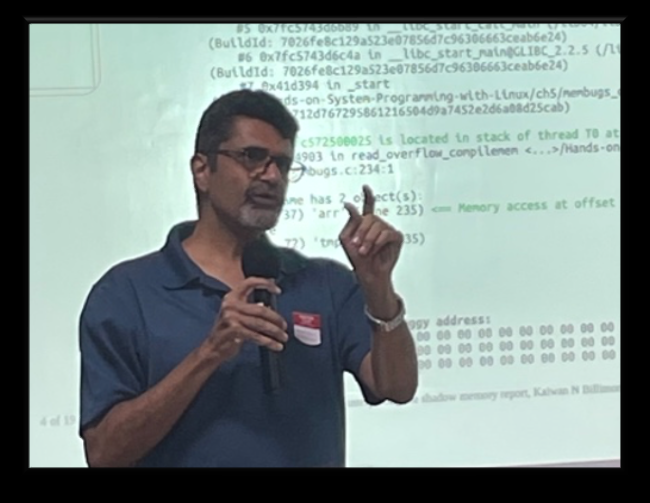
First up was the topic – KASAN, presented by author Kaiwan N Billimoria who has authored several books on Linux Kernel and System Programming. He shared insights into using ASAN and KASAN, with
primary focus on interpreting their shadow memory reports. Kaiwan certainly set the room aglow with his knowledge.

Second lightning talk was presented by Manvanthara Puttashankar, from IBM who leads the Functional Verification of Linux Kernel efforts at LTC. He presented a proposal in a whirlwind of ten minutes, switching rapidly between the perspectives of a developer and a tester, of One Test Team Approach. He stressed on the need for consensus upon “must have” sanity test for each of the kernel subsystem. He petitioned for the need of a framework which covers agreed upon tests across Linux sub-systems. His
proposal sparked interesting thoughts and debate among the audience, leaving them behind food for thought.
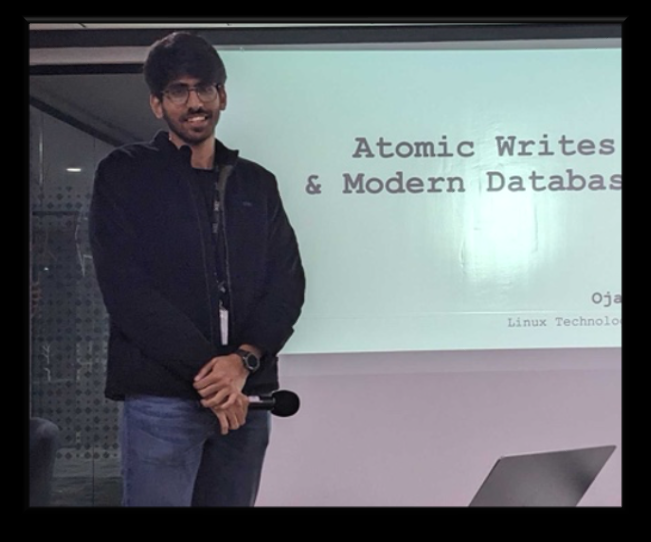
Following quite the engaging session was a networking break. We took a breather, connecting with our fellow attendees amidst the comforting aromas of freshly brewed coffee and tea in the cosy corridor.
Immediately after the networking break, that was long enough to fill ourselves with caffeine but not our heart with conversations, Ojaswin Mujoo, a kernel developer from IBM’s LTC, took the stage, striking with a talk on atomic writes in the Kernel and how they’ve impacted modern databases. It was like a bolt of knowledge thundering through the room.
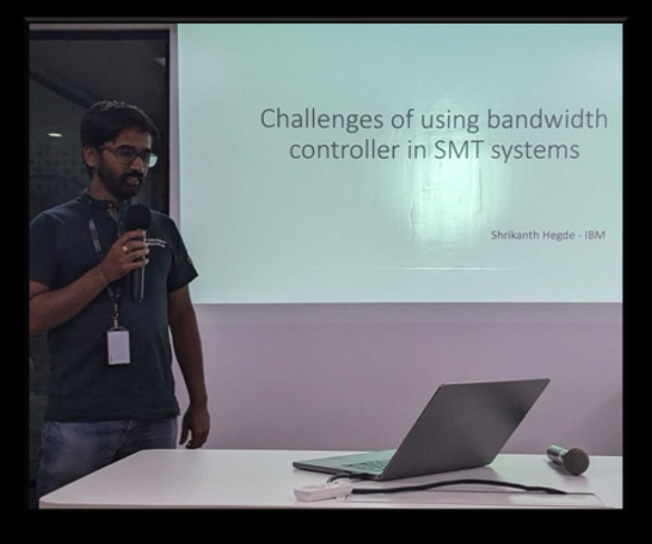
As the event neared its end, Shrikanth Hegde from IBM (LTC) delivered the last presentation of the day on the challenges of using a bandwidth controller in SMT systems. He delved into the intricacies, introducing
bandwidth controllers and addressing two significant hurdles – the alignment of cgroups at throttled expiry and the performance implications at low utilizaNon and high concurrency in SMT systems.
As the event neared its climax, Praveen Kumar (Microsoft) and Vinod Koul (Linaro) took the reins, initiating an engaging discussion among the attendees. Spontaneous feedback from the audience was encouraged on a variety of topics such as future events, potential problems in hosting the event at a larger scale and online, ideas on increasing student participation, and the frequency of such meetups. This interactive session had a good turnout of enthusiastic participants from the audience, upholding the spirit of an open source community.
With a spirit of collaboration and learning, the event drew to a close, and the baton (this time not a
microphone, an actual figurative baton) of organizing the next meetup was taken on by Microsoft. Mark
your calendars tentatively for the end of February or the beginning of March as we look forward to another exciting rendezvous in spring of 2024!
In this blend of knowledge, camaraderie, and fruigul discussions, the Linux Kernel Meetup Bangalore
proved to be a memorable day for all Linux enthusiasts. It provided the perfect platform for Linux
aficionados to ignite their passion, sparking new ideas and leaving a lasting impact. Until next time, keep
those sparks of curiosity burning bright!
Cheers!
